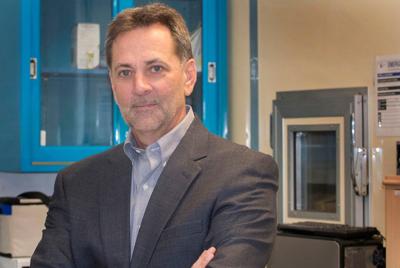W. Larry Kenney is a professor of physiology and kinesiology at Pennsylvania State University. He specializes in the control of blood flow to the skin with an emphasis on aging, physiology and the biophysics of heat exchange between human beings and the environment, as well as body temperature regulation during exercise and in extreme environments.
Kenney has more than 200 published works on the effects of the environment on the human body since 1984. He spoke to The Times-Picayune | The Advocate about why living in a warm and humid coastal community can be especially dangerous. The conversation has been edited for length and clarity.
What’s happening that's making it more humid as climate change gets its grip on us?
In general, both the temperature and humidity around the world have shifted higher. So when we talk about climate change, everybody focuses on the fact that temperatures around the Earth are getting a couple of degrees warmer every decade or two. But the average temperature and humidity changing really isn't the problem because humans do a good job of dealing with heat. But as that whole curve shifts toward hotter temperatures, now we have a lot more extremely hot and humid days at that far end of the curve. Along with the temperature change, the climate is able to hold more water vapor and humidity increases as well.
Your research says that the global temperature has been increasing noticeably since 1950. Can you say if that's affecting a coastal city like New Orleans more than other communities?
Coastal communities around the world and especially in hotter climates, like New Orleans, are always susceptible to high levels of humidity. Because of the accessibility to water, there’s a propensity for high humidity as it evaporates into the atmosphere. And so some of the most dangerous combinations of temperature and humidity tend to occur in areas like the U.S. South’s coastal communities.
Why does humidity along with high air temperature make it feel hotter than it is?
Humid heat is extremely dangerous because humans cool by having sweat evaporate. If you sweat in the heat, and it just stays on the skin or it drips off, we're exacerbating dehydration. The sweat that drips off doesn't do anything to cool the body. The more humid it is, the less sweat evaporates.
Do we know how much high humid heat the human body can tolerate?
It's hard to answer in terms of humidity because we need to look at how much heat we're generating. Americans commonly use heat index to talk about how dangerous the heat is. It’s just how hot it feels; it really has nothing to do with the impact on the human body. We measure something called wet bulb temperature. If you took a thermometer, and you put a wick on the bulb, and you wet that with water, some of that water will evaporate, and that’ll cool the temperature of the thermometer. That's the way the human body responds when we produce and evaporate sweat. So, if it's over 50% relative humidity, then the critical wet bulb temperature for us keeping our bodies relatively cool and not having our core temperature go up is a wet bulb temperature of somewhere around 87 or 88 degrees Fahrenheit. And remember, that's wet bulb temperature, not air temperature. If it were 88 degrees and 100% humidity, that's a wet bulb temperature of 88. The critical temperature is lower than what the meteorology world has said for decades, more like 95 degrees wet bulb.
Relative to wet bulb temperatures, who is most vulnerable and how is this going to affect them?
The most vulnerable people are at both ends of the age spectrum. So infants, because they're really at the mercy of their parents to keep them cool and keep them well hydrated, are vulnerable to temperature extremes. And then people over the age of 65 are vulnerable. A lot of elderly don't have access to places with air conditioning. And as we get older, our body is less able to tolerate those conditions of high heat and humidity. As we age, and we're in hot, humid conditions, the heart tries to pump blood flow to the skin to get rid of heat that our body builds up. But the heart has to work harder and harder. So that puts a tremendous cardiovascular strain on elderly individuals. For heatwaves in large American cities, the bulk of people at hospital emergency rooms or who die are over the age of 65. And the cause of death is very commonly cardiovascular.

